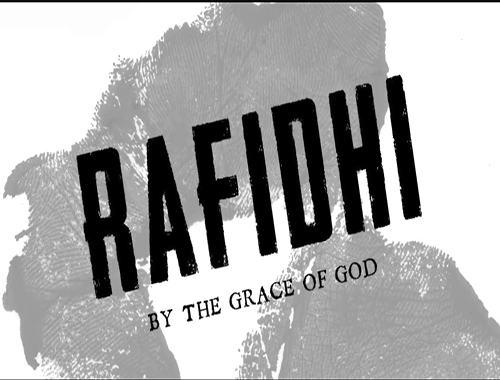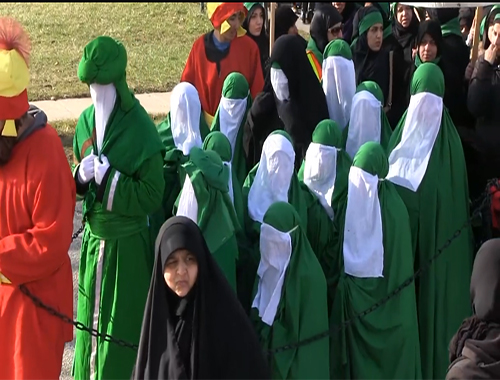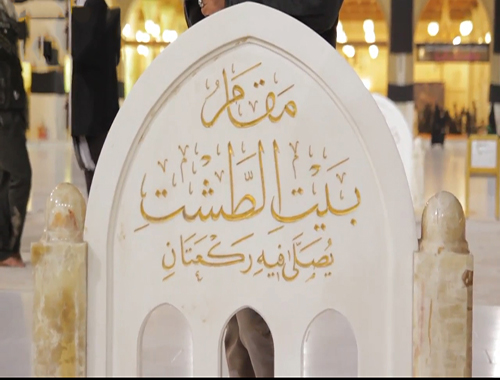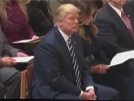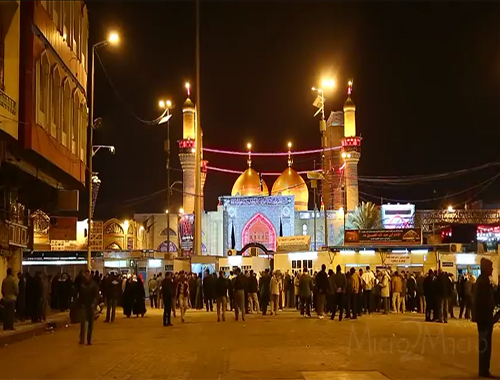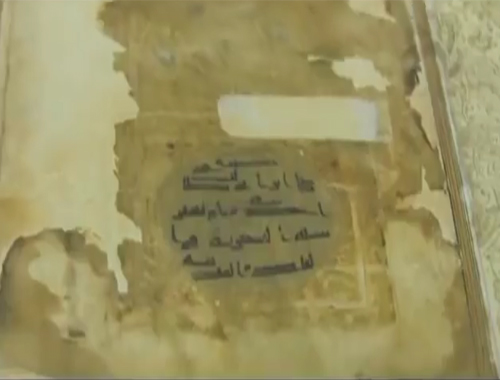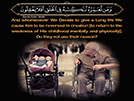Prayer of Eid-ul-Fitr
- Details
- Hits: 15592
.jpg)
Introduction
Fitra
Fitra is obligatory and Shariah (jurisprudence) emphasises a lot on its observance. Abandonment of paying Fitra tantamounts to major sin. Imam Jafer Sadiq(AS) has said that "Just as if any person does not recite Salawat for Prophet Mohammad(pbuh&hf) and his Ahl-e-Bait(AS) during prayers, his/her prayer is not acceptable, likewise if a person does not pay Fitra at the end of Ramzan, his/her Fasts of Ramzan are not acceptable".
Obligation of Fitra
Fitra is obligatory on all sane, mature, liberated - suggesting that it is not obligatory on slaves - and financially independent (Ghani) persons. Ghani in this context would mean that one can independently afford the expenses for the whole year.
Whether sufficient cash for this purpose is readily available or one has a permament job/business which is sufficient for sufficiently providing expenses for a whole year. If these conditions do not exist, one would not be categorized as Ghani instead as Faqeer (Dependent or insolvent) and Fitra is not obligatory on a Faqeer instead it is Mustahab (recommended).
Fitra is obligatory on Ghani persons for themselves as well as for their family members. Irrespective of the fact that it is obligatory for one to bear the expenses of his family members and that the family members are mature (baligh) or not (na-baligh), are liberated/free or slave.
Likewise, it is obligatory upon one to pay the Fitra for a guest (be it a Muslim or non-Muslim) who is staying with the person when the moon of the new month of Shawwal is sighted. However, if the guest arrives after the sighting of the moon then the Fitra of that guest is not obligatory on the host. And finally if the host is a Faqeer (dependent or insolvent) and the guest is a Ghani (solvent) then the guest would pay his/her own Fitra.
Timing of Fitra
Fitra becomes obligatory (wajib) upon sighting of the moon. It is preferable to separate the Fitra during the night. From that time onward, the Fitra can be distributed any time but not later that the Eid-ul-Fitr prayers the next day.
If somehow, the Fitra is not distributed before the prayers of Eid-ul-Fitr then it can still be distributed until the evening of Eid-ul-Fitr with the intention (niyat) of proximity to Allah (Qurbatan il-Allah). Distinction of delayed (Qaza) or within time (Ada) is not necessary. If Fitra has been separated with the intention of giving it to some special person who has the right to receive it (mustahiq) then further delay is permitted.
Even with all these conditions, Fitra is still not distributed until the descending of the Sun starts (zawal), it is still recommended to pay the Fitra on that day and even if the day passes, Fitra is still to be paid on the following day.
Amount of Fitra
Measurement of Fitra - in Shariah terminology - is one Sa'ah which is an Arabic weighing equivalent to about 3 Kilos and 250 grams per person. To be on the safe side, 3 and a half Kilos of Fitra per person is recommended.
The grain of Fitra could be wheat, barley, dates, rice or whatever item is more frequently used for eating. It is perfectly acceptable to pay the cost of instead of the 3 and a half Kilos of any of the above items to the deserving people. The amount will be determined as per prevalent market rates of the items.
Desrving people who can receive Fitra
The most deserving people for receiving amounts of Fitra are the poor people. Preference should be given to relatives if there are poor relatives. After the relatives, any poor neighbors should be preferred and then the Ulema - the scholors.During the period of occultation (ghaibat) of Imam Zamana(AS), it is preferable to give the amounts of Fitra to a Mujtahid (Learned scholors).
The persons receiving the Fitra money should not be Syed, however if the Fitra is coming from a Syed then a deserving Syed can also receive it. In addition, the poor who receives the Fitra should not be dependant upon the person giving the Fitra. Fitra should be given to a person who is not expected to get involved in major sins. Finally, one deserving person should not be given less than the amount of one Fitra (equal to 3.5 Kgs of any item stated above), however, more than one Fitra can be given to any deserving person.
Takbeerat
The following takbeerat should be recited from the Maghrib prayer on the eve of Eid-ul-Fitr until after the Eid prayers.
اَللّهُ اَكْبَرُ اَللّهُ اَكْبَرُ لا اِلهَ اِلاّ اللّهُ وَاللّهُ اَكْبَرُ اَللّهُ اَكْبَرُ وَلِلّهِ الْحَمْدُ اَلْحَمْدُ لِلّهِ عَلى ما هَدينا وَلَهُ الشُّكْرُ على ما اَوْلينا
The meaning of the above is: Allah is Greatest, Allah is Greatest there is no one worthy of prayer but Allah, and Allah is Greatest; Allah is Greatest, and all Praise is for Allah. All Praise is for Allah, for that which He has guides us and for Him is thanks for what He has."
allahu akbaru allahu akbaru laa ilaha il allahu wallahu akbaru allahu akbaru wa lillahil hamd alhamdu lillahi ala ma hadana wa lahush shukru ala ma aulana
Prayer of Eid-ul-Fitr
The time of Eid-ul-Fitr is from the sun rise to the time when the sun starts descending. Prayer of Eid-ul-Fitr can be performed in Jama'at or alone.
It is a recommend Sunnat to perform Ghusl (Purification Bath) on Eid day. The Ghusl which should preferably performed under a shelter and not under the open sky. Before offering Eid prayers it is recommended to have a breakfast of dates. The specified time of Eid prayer is between sunrise and the sun's initial decline (Zawal). After that time, the prayer is lost and cannot be offered later as 'Qaza'. Women are exempted from this prayer.
It is 'Mustahab' (recommended) to offer Eid prayers with two Kutbas.
Recitation of Takbir before Namaz-e-Eid is highly recommended, which is as follows : "Allaaho Akbar, Allaaho Akbar, Laa ilaaha illallaah wallaaho Akbar, Allaaho Akbar, Wa lillaahil hamd. Alhamdulillah alaa maa hadaanaa walahu Shukr alaa maa aulana."
The meaning of this Takbeer is as follows : Allah is Great, Allah is Great there is no one worthy of prayer but Allah, and Allah is Great; Allah is Great, all praise be to Allah, it is He Who guides."
Method of the Prayer
This is a 2 Rakaat prayer . In the first Rakaat recite the Takbeeratul Ahraam (Allah ho-Akbar). After Sura Fatiha recite the Sura-Aala :
After this Sura, the following special Dua-e-Qunoot is recited :
َللّهُمَّ اَهْلَ الْكِبْرِياَّءِ وَالْعَظَمَةِ وَاَهْلَ الْجُودِ وَالْجَبَرُوتِ وَاَهْلَ الْعَفْوِ وَالرَّحْمَةِ وَاَهْلَ التَّقْوى وَالْمَغْفِرَةِ اَسْئَلُكَ بِحَقِّ هذَا الْيَومِ الَّذى جَعَلْتَهُ لِلْمُسْلِمينَ عيداً وَلِمُحَمَّدٍ صَلَّى اللّهُ عَلَيْهِ وَ الِهِ ذُخْراً ]وَشَرَفاً[ وَمَزِيْداً اَنْ تُصَلِّىَ عَلى مُحَمَّدٍ وَ الِ مُحَمَّدٍ وَاَنْ تُدْخِلَنى فى كُلِّ خَيْرٍ اَدْخَلْتَ فيهِ مُحَمَّداً وَ الَ مُحَمَّدٍ وَاَنْ تُخْرِجَنى مِنْ كُلِّ سُوَّءٍ اَخْرَجْتَ مِنْهُ مُحَمَّداً وَ الَ مُحَمَّدٍ صَلَواتُكَ عَلَيْهِ وَعَلَيْهِمْ اَللّهُمَّ اِنّى اَسْئَلُكَ خَيْرَ ما سَئَلَكَ مِنْهُ عِبادُكَ الصّالِحُونَ وَاَعُوذُ بِكَ مِمَّا اسْتَعاذَ مِنْهُ عِبادُكَ الْصّالِحُونَ
alla humma ahlal kibriyaai
wal azamati wa ahlal joodi wal jabaroot
wa ahlal afwi war rahmati
wa ahlat taqwaa wal maghfirah
as-aluka bihaqqi haazal
yawmil lazi ja-altahu lil muslimeena eidan
wa li muhammadin sallallaahu alayhi wa aalihee
zukhran wa sharafan wa karamatan wa mazeedaa
an tu salli ala muhammadin wa aali muhammad
wa an tudkhilani fee kulli khayrin
adkhalta feehi muhammadan wa aali muhammad
wa an tukhrijani min kulli sooo-in
akhrajta minhu muhammadan wa aali muhammad
salawaatuka alayhi wa alayhim
allaahumma innee as-aluka khayra
maa sa-aluka bihi ibaadukas saalihoon
wa a-oozubeka mimmas ta-aaza
minhu ibaadukal mukhlisoon
After this recite the Takbeer again (Allah ho-Akbar) and again raise the hands for the same Dua-e-Qunoot.. In the same manner, recite the Takbeer and the Dua-e-Qunoot 5 times in total. Follow this up with one Rukoo and two Sajdas and the rise up for the second Rakaat.
In the second Rakaat, after Sura Fatiha, recite Sura Shams:
This will be followed by the same Takbeer and Dua-e-Qunoot stated above. This Takbeer and Dua-e-Qunoot will be recited 4 times in total in the second Rakat. Finally complete the Prayer by offering one Rukoo and two Sajdas and Tashud and Salam.

